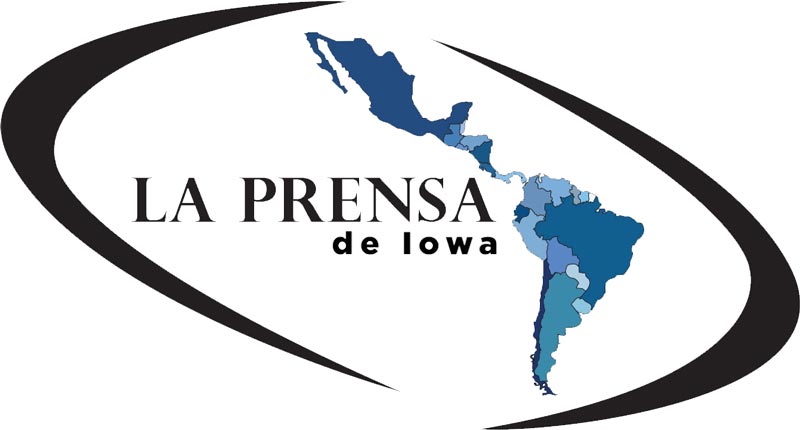Proteja su información de las redes sociales
/Las redes sociales se han vuelto una herramienta para conectar a las personas a través de la distancia, pero también se ha convertido en una herramienta para que personas con malas intenciones tengan acceso a tu información.
Ashley Martínez Torres
Especial para LA PRENSA Iowa
Con el tiempo, las redes sociales han venido a ocupar una parte esencial de nuestras vidas, y cada día existen aplicaciones nuevas que las generaciones jóvenes usan más que las generaciones adultas, por lo que muchas veces los padres no están al tanto de los lugares cibernéticos que sus hijos visitan y con quién información personal que tarde o temprano se puede revertir en su contra.
El gerente de Servicios de tecnología de la información (Computer Solutions Services, PCS, por siglas en inglés) Carl Ladwig, de Denison; dijo que tanto los adultos como los jóvenes deben de ser precavidos con la información que comparten. “Que tengas la habilidad de compartir tu vida en las redes sociales, no significa que tengas que hacerlo.”
Carl explicó que muchas personas tienden a ser muy activas en sus redes sociales, y que comparten hasta el más mínimo detalle de sus vidas en las plataformas. “Lo que conlleva a que personas extrañas sepan donde vive so los lugares que frecuentas, y esto te hace vulnerable a gente con malas intenciones ya sean criminales o pedófilos, si es que tienes hijos.”
Referente a las plataformas sociales Carl dijo “Puedes tener más de 2000 amigos o seguidores, pero esto no significa que conozcas a todas estas personas o a lo que se dedican. Ellos tienen acceso a tu perfil, tus fotos, tu información, entre otras cosas, porque tú eres quien les estas facilitando el acceso.”
De igual manera, Carl aconseja a los padres de familia que si sus hijos forman parte de las redes sociales, “Es importante que estén pendiente de lo que sus hijos comparten o con quién interactúan ya que existen personas que buscan ganarse la confianza de los jóvenes crear una conexión emocional, y así poder manipularlos, explotarlos e incluso abusar de los jóvenes con facilidad; a esta gente se le conoce como ‘groomers.’ Esas personas [los groomers] han estudiado tan bien a tu hijo, que les dirán lo que tu hijo está deseoso de escuchar para ganarse su confianza; especialmente los niños o jóvenes con hogares inestable, que sufren algún tipo de abuso o negligencia y un “groomer” suele ofrecer el cariño o la atención que el niño o joven desea tener.”
La trata de personas en Iowa es un problema que afecta a cada comunidad del estado; según el reporte anual de la Oficina en Iowa para Combatir la Trata de Personas (Iowa OCHT por sus siglas en inglés) del 2021, el departamento documento al menos 43 reportes y pistas relacionadas a este crimen en el 2020; de los cuales 34 fueron recibidos por medio de la Línea Nacional de Trata de Personas (the National Human Trafficking Hotline (NHTH) por su nombre en inglés), la cual es parte del Proyecto Polaris (the Polaris Project por su nombre en inglés). Mientras que, en la primera mitad del 2021, 18 de estos informes fueron documentados, de los cuales 14 fueron por medio de NHTH.
Gerente de Servicios de Tecnología de la Información en Professional Computer Solutions (PCS) Carl Ladwig.
“El tema de las redes sociales abarca muchos aspectos sobre la privacidad y la seguridad, es por eso que hay que ser conscientes de los riesgos que estas plataformas traen consigo,” Carl agregó.
En el 2020, se reportaron al menos 10,583 incidentes de trata de personas al NHTH que involucraban alrededor de 16,658 víctimas de este crimen en los Estados Unidos, según reportó el Proyecto Polaris. Cabe agregar, que un análisis por medio de esta organización encontró que el reclutamiento en línea incrementó un 22 por ciento en los últimos años; especialmente en las plataformas de Facebook, la cual incrementó un 125 por ciento, e Instagram, la cual incrementó hasta un 95 por ciento.
El Proyecto Polaris es un movimiento de justicia social basado en datos que reduce, previene y, en última instancia, pone fin a la trata sexual y laboral y apoya a los sobrevivientes en el camino hacia la libertad y la curación.
“No buscamos asustar a la comunidad, solo queremos crear consciencia ante los riesgos que nos exponemos cada día, ya que vivimos en un mundo donde todos tenemos una presencia en línea sin importar lo que hagamos.” dijo Carl. Agregando. “Pero recomiendo que las personas limiten la información personal que comparten lo más que se puedan.”
Este artículo es patrocinado por Western Iowa Journalism Foundation.
Translation
Protect your information from social networks
Social media has become a tool for connecting people across distance, but it has also become a tool for people with bad intentions to access your information.
Ashley Martínez Torres
Especial para LA PRENSA Iowa
Social media have been part of our lives for several years, and every day there are new apps that younger generations use more than older generations, so many times parents are not aware of the places where their children share information or the friends they make online just as it is difficult to know who have access to every aspect of their lives.
Information Technology Services Manager at Professional Computer Solutions (PCS) Carl Ladwig says that both adults and young people should be cautious with the information they share.
"Just because you have the ability to share your life on social media, doesn't mean you have to," he said.
Ladwig explained that many people tend to be very active on their social media and share even the smallest detail of their lives on these platforms, which causes strangers to know where they live or the places they frequent, and this makes them vulnerable to people with bad intentions whether they are criminals or pedophiles, if they have children.
"You can have more than 2,000 friends or followers, but this doesn't mean you know all these people or what they do," he explained. "They have access to your profile, your photos, your information, among other things, because you are the one who is facilitating their access."
On the other hand, if you have children and they are part of social media, it is important that you are aware of what they share or with whom they interact since there are people who seek to gain their trust to later create an emotional connection and thus be able to manipulate, exploit or even abuse them easily; these people are known as groomers.
"These kinds of people will say what your child wants to hear to gain their trust," Ladwig said. "Children with unhappy lives are especially vulnerable to these types of people."
Information Technology Services Manager at Professional Computer Solutions (PCS) Carl Ladwig.
What is meant by this is that children or young people with unstable homes, who suffer some type of abuse or neglect are vulnerable to groomers, because they usually offer the affection or attention that the child or young person wants to have.
Human trafficking in Iowa is a problem that affects every community in the state; According to the 2021 Iowa Office on Combating Human Trafficking (Iowa OCHT) annual report, the department documented at least 43 reports and leads related to this crime in 2020; of which 34 were received through the National Human Trafficking Hotline (NHTH), which is part of the Polaris Project. While, in the first half of 2021, 18 of these reports were documented, of which 14 were through NHTH.
"Social media includes many aspects of privacy and security, which is why you have to be aware of the risks that these platforms bring with them," Ladwig added.
In 2020, at least 10,583 human trafficking incidents were reported to NHTH involving about 16,658 victims of this crime in the United States, as reported by Project Polaris. Additionally, an analysis through this organization found that online recruitment increased by 22 percent in recent years; especially on the platforms of Facebook, which increased by 125 percent, and Instagram, which increased up to 95 percent.
The Polaris Project is a data-driven social justice movement that reduces, prevents, and ultimately ends sex and labor trafficking and supports survivors on their paths to freedom and healing.
However, even though online safety is an issue to be aware of, it is not necessary for people to become paranoid about this issue; In addition, at the end of the day, both parents and children are in charge of what they share through social networks.
"We don't seek to scare the community, we just want to raise awareness of the risks we expose ourselves to every day, as we live in a world where we all have an online presence no matter what we do," Ladwig explained. "But I recommend that people limit the personal information they share as much as possible."
This article is sponsored by the Western Iowa Journalism Foundation.












































